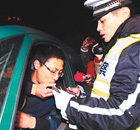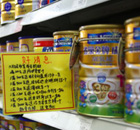Top Biz News
Rubbish to be taxed from next year
By Cui Xiaohuo (China Daily)
Updated: 2009-12-18 07:56
 |
Large Medium Small |
A tax on excessive rubbish disposal will be introduced next year in an attempt to combat the Beijing's growing waste problem, local authorities said.
Chen Ling, vice-director of the Beijing municipal commission of administration, said organizations and residents would be charged under the tiered scheme, which would be imposed according to the total amount of rubbish produced.
"We have proposed that legislators start charging organizations and some individuals according to the volume of rubbish they produce," Chen told a legislative session on waste disposal, the Beijing News reported.
Chen did not reveal how the tax would be structured or how much waste would be considered excessive, however he did say that it would encourage recycling.
The official said the commission would release waste disposal standards for different organizations in the near future.
Those that produce waste below the standard will receive a stipend, and those that produce above their quota will be fined.
"Individuals will be charged later as the policy is proven to be effective at bigger organizations," Chen said.
In a separate interview last month, Chen told reporters the differential tax would be implemented from next year. He said it would first apply to large organizations, including government institutions, large private businesses and more than 10,000 restaurants.
Environment experts have criticized Beijing's slow progress on recycling and said the large amount of kitchen and daily waste, without being treated, has filled the city's landfill sites.
"We get all kinds of rubbish each day. Most of it is food waste and hygiene waste," a worker at a nearby rubbish collection site said, adding it was not their job to classify waste before sending it to larger waste treatment stations.
Also during the session, a different municipal senior official refused to back down from the government's firm stance on incineration plants.
"As the next step, we should expand the use of incineration in garbage disposal," said Beijing's vice mayor Huang Wei, whose work includes environment protection duties.
The government, unsatisfied with the city's 23 waste treatment facilities, plan to add at least ten new plants in the next five years. Some of the new treatment plants are rumored to be incinerators, which are unpopular with local residents.
Residents in Xiaotangshan in northern Beijing have rallied against plans to build a 20 sq km Asuwei waste treatment plant near their community.













